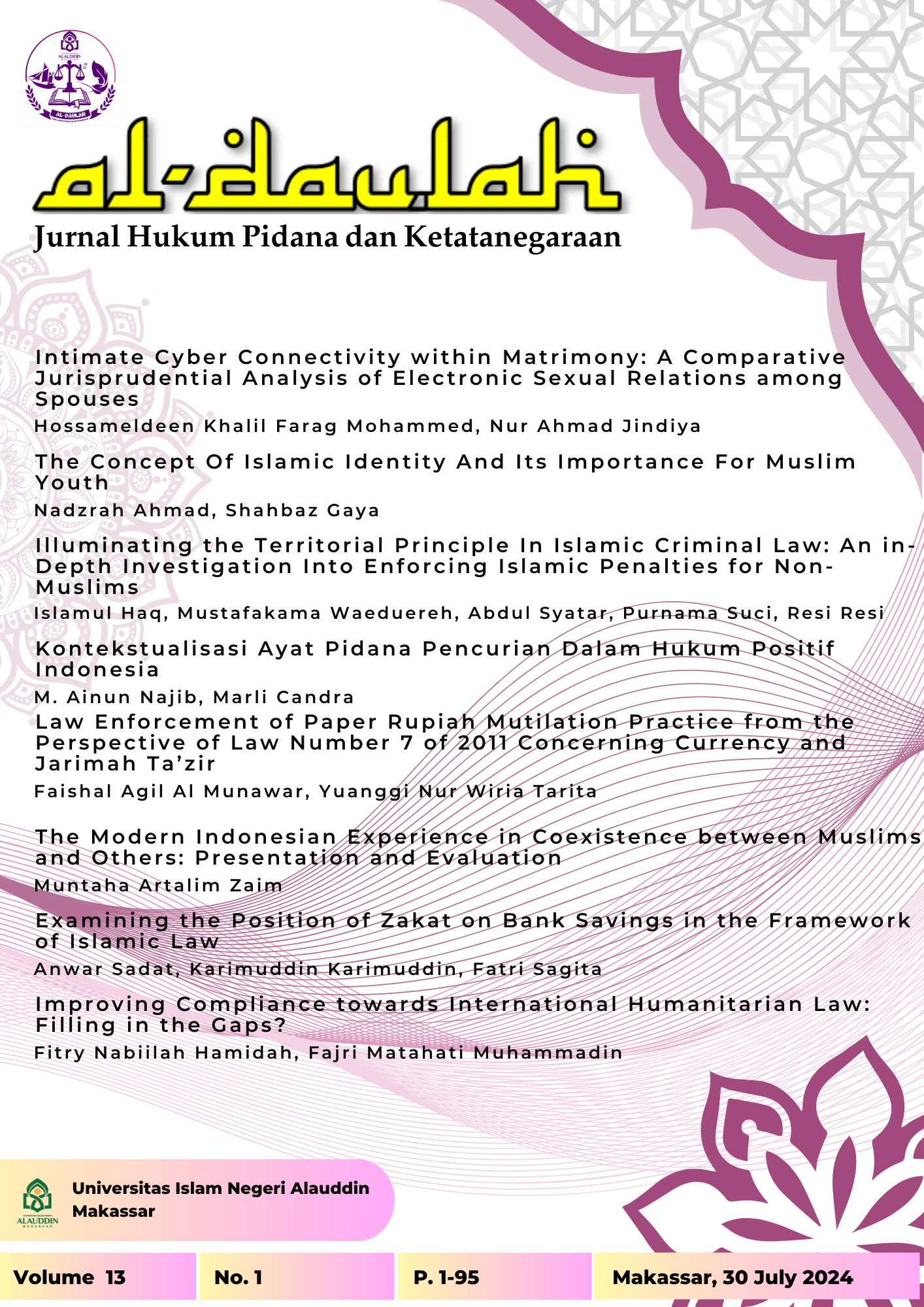Penegakan Hak Buruh oleh Konfederasi Serikat Pekerja Maros; Eksistensi dan Peranan
Abstract
Violation of workers' rights in Indonesia is a central issue in labor relations Commonly violations of workers' rights demand the existence of the Confederation of Trade Unions as an organization formed from, by, and for workers both in the company and outside the company, which is free, open, independent, democratic, and responsible to fight for, defend and protect the rights and interests and welfare of workers. For this reason, this research is oriented in the form of normative empirical research that seeks to observe the provisions of laws and regulations from the aspects of the rights and obligations of workers and employers along with law enforcement and direct observations in the Confederation of Maros Trade Unions in their role defending the rights and interests of workers in Maros Regency. The conclusion in this study is that labor relations outline the existence of inseparable rights and obligations as a definite causality, so disputes over rights and obligations between workers and employers require law enforcement that can be pursued outside the court through Bipartite settlements and mediation and litigation settlements through judicial institutions. In addition, the existence of KSPI Maros plays a very important role in industrial relations and efforts to resolve labor rights disputes through Bipartite, mediation and courts.References
Bambang, R Joni. Hukum Ketenagakerjaan. Bandung: Pustaka Setia, 2013.
Fatimah, Yani Nur. “Penyelesaian Perselisihan Hubungan Industrial Di Pengadilan Hubungan Industrial Dalam Pemenuhan Hak Pekerja/Buruh Yang Di Putus Hubungan Kerja.” Pandecta Research Law Journal 10, no. 2 (December 2015): 215–32. https://doi.org/10.15294/PANDECTA.V10I2.4954.
Ibrahim, PZulkarnain. “Eksistensi Serikat Pekerja/Serikat Buruh Dalam Upaya Mensejahterakan Pekerja.” Jurnal Media Hukum 23, no. 2 (2016): 150–61. https://doi.org/10.18196/JMH.2016.0076.150-161.
Pradima, Akbar. “Alternatif Penyelesaian Perselisihan Hubungan Industrial Di Luar Pengadilan.” DiH: Jurnal Ilmu Hukum 9, no. 17 (February 2013): 1–18. https://doi.org/10.30996/DIH.V9I17.251.
Pratiwi, Charina Lucky. “Pencatatan Serikat Pekerja/Serikat Buruh Berdasarkan Asas Kebebasan Berserikat.” INTERDISCIPLINARY JOURNAL ON LAW, SOCIAL SCIENCES AND HUMANITIES 2, no. 1 (May 2021): 1–27. https://doi.org/10.19184/IJL.V1I2.21975.
Pujiastuti, Endah. Pengantar Hukum Ketenagakerjaan. Semarang: University Pres Semarang, 2008.
Republik, Indonesia. Undang-Undang Republik Indonesia Nomor 21 Tahun 2000 Tentang Serikat Pekerja/Serikat Buruh. Jakarta: Sekretaris Negara RI, 2000.
Ridwan, H R. Hukum Administrasi Negara. Jakarta: Raja Grafindo Persada, 2018.
Sastrohadiwiryo, Siswanto, and Asrie Hadaningsih Syuhada. Manajemen Tenaga Kerja Indonesia. Jakarta: Bumi aksara, 2021.
Satori, Djam’an, and Aan Komariah. Metodologi Penelitian Kualitatif. Cet. III; CV. Bandung: Alfabeta, 2011.
Sianipar, Richard Indra Kurnia. “Perlindungan Terhadap Orang Asing Dikaitkan Dengan Peraturan Izin Tinggal Di Indonesia.” LEX ADMINISTRATUM 9, no. 4 (2021): 16–26.
Sinaga, Niru Anita, and Tiberius Zaluchu. “Perlindungan Hukum Hak-Hak Pekerja Dalam Hubungan Ketenagakerjaan Di Indonesia.” Jurnal Teknologi Industri 6 (2021): 56–70. https://doi.org/https://doi.org/10.35968/jti.v6i0.754.
Sipayung, Parlin Dony, Sardjana Orba Manullang, Hendrik Ruben Gelong, Nasrin Nasrin, Hijriani Hijriani, Martono Anggusti, and Annisa Ilmi Faried. Hukum Ketenagakerjaan. Medan: Yayasan Kita Menulis, 2022.
Utami, Tanti Kirana. “Peran Serikat Pekerja Dalam Penyelesaian Perselisihan Pemutusan Hubungan Kerja.” Jurnal Wawasan Yuridika 28, no. 1 (January 2015): 675–86. https://doi.org/10.25072/JWY.V28I1.63.
The authors of a work hold the copyright and grant the Al-Daulah: Jurnal Hukum Pidana dan Ketatanegaraan the right of first publication. The work is also licensed under the Creative Commons Attribution License (CC BY 4.0), which enables others to share the work while acknowledging the authorship and initial publication in the journal. The authors can make separate contractual agreements for the non-exclusive distribution of the published version of the work, such as by posting it to an institutional repository or editing it for a book, with an acknowledgment of its initial publication in this journal. Authors are allowed and encouraged to post their work online, such as in institutional repositories or on their website, before and during the submission process. This can lead to productive exchanges and greater citation of the published work.


